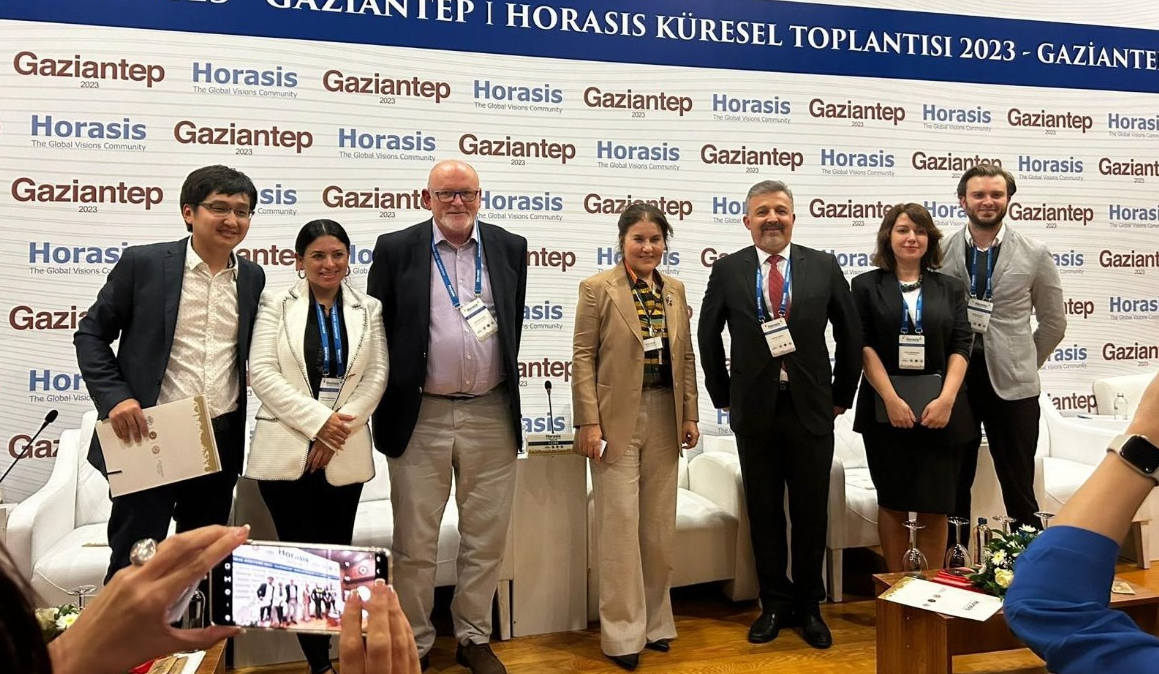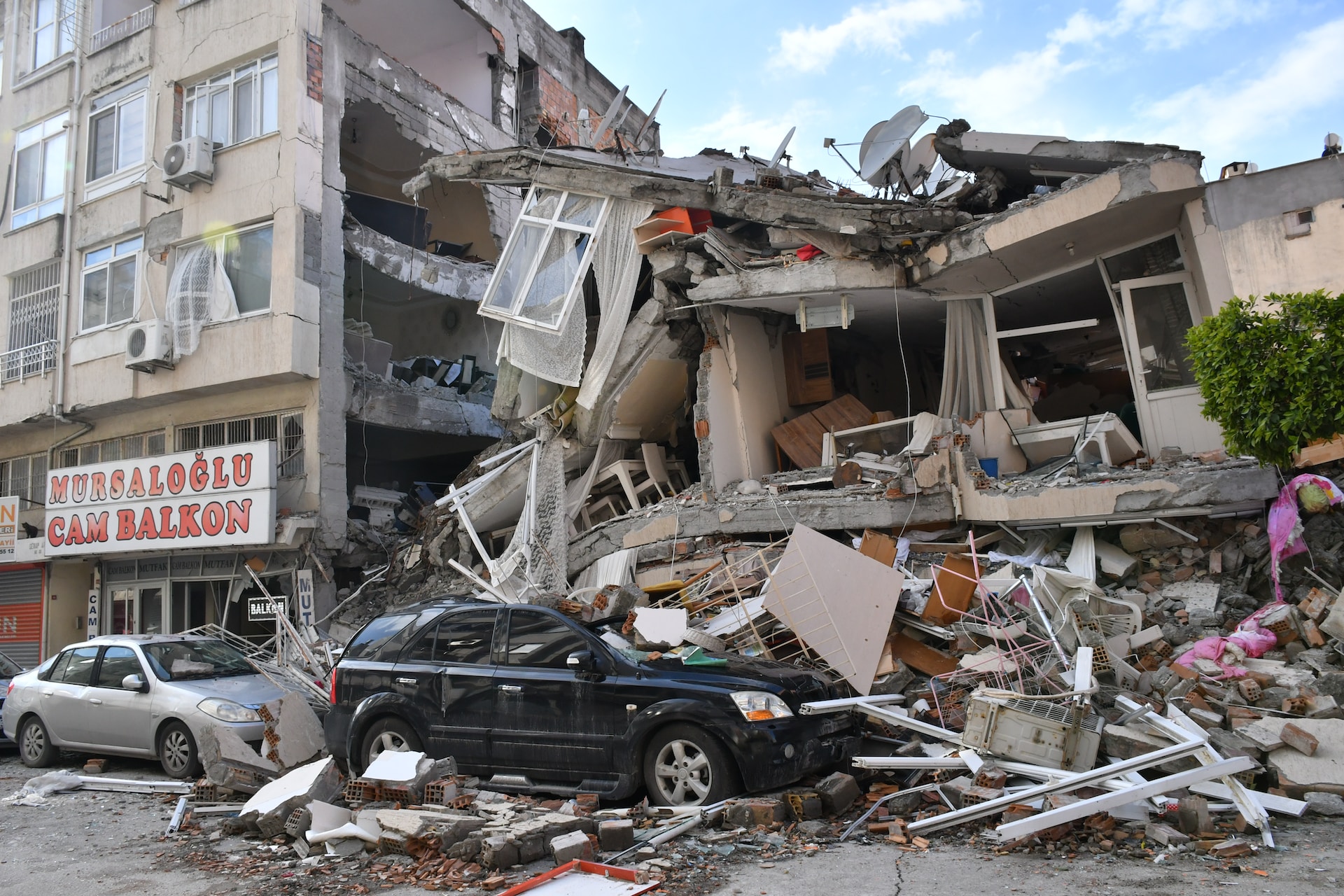Investing in Sustainable Priorities
By Undral Amarsaikhan, CEO, TenGer TV, Mongolia
The Horasis Global Meeting, held in Gaziantep, Turkey, this year, was a significant gathering that aimed to delve into the realms of innovation, sustainability, and reconstruction. Against the backdrop of the devastating earthquake earlier this year, which claimed the lives of more than 50,000 people and caused an estimated $34 billion in losses, the event’s overarching theme held a poignant significance. In this context, the panel discussion on “Investing in Sustainable Priorities” emerged as one of the focal points, illuminating the vital interplay between traditional industries, emerging technologies, and sustainability. As the moderator of this esteemed panel, I had the privilege to facilitate insightful discussions and now present the key takeaways through this article.
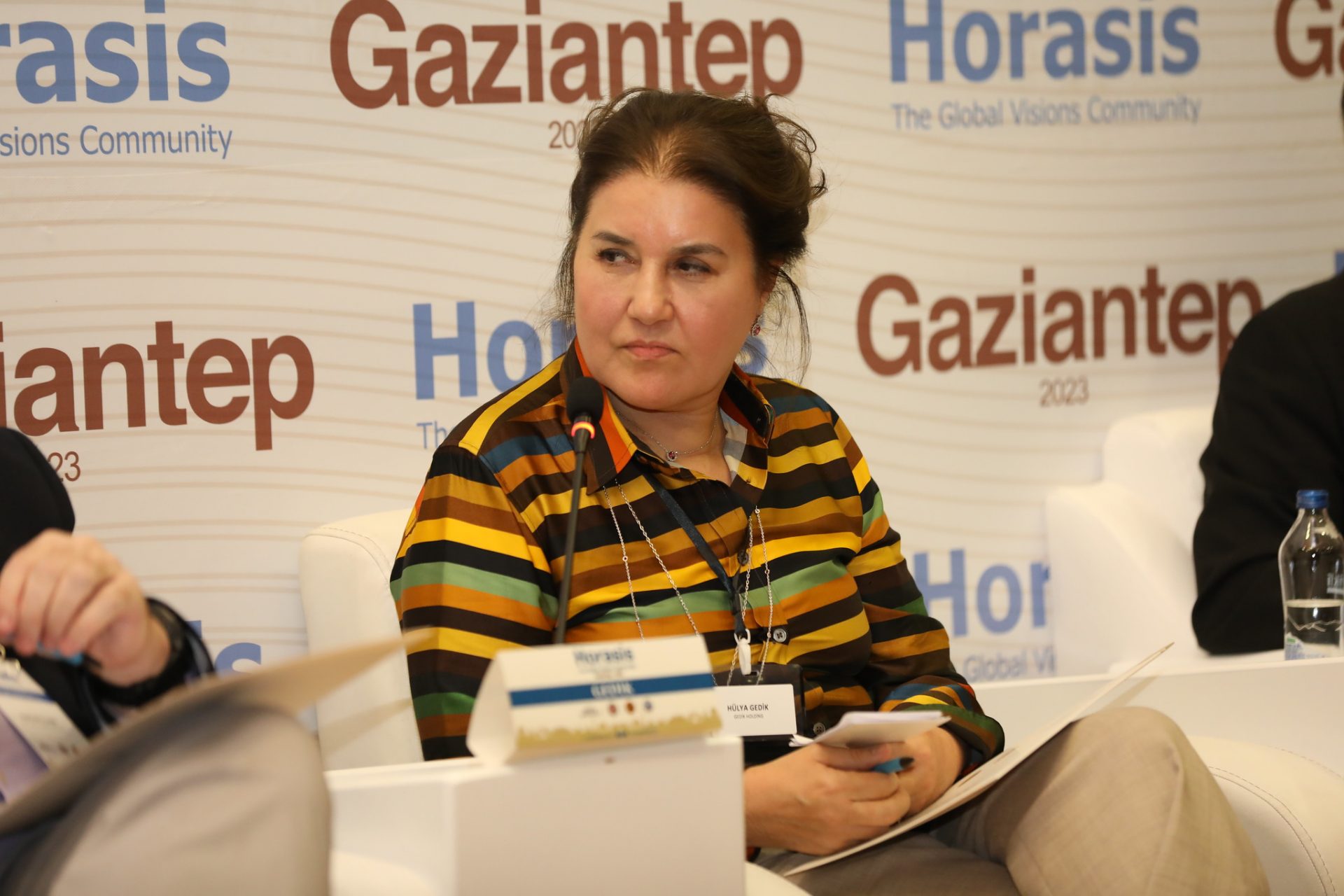
Hulya Gedik, Chair, Gedik Holding, Türkiye
Diversity and Collaboration for Sustainable Reconstruction
Comprising a diverse set of experts, the panel explored the pivotal role of various industries in the context of reconstruction. The panel’s composition itself echoed the need for collaboration between traditional and emerging sectors. Hulya Gedik, Chairwoman, Gedik Holdings, Türkiye one of the largest conglomerates in Turkey, shed light on the integration of technological advancements such as AI and robotics within their traditional business framework, emphasizing the importance of nurturing an innovation-first mindset within the company.
Recognizing the significance of sustainable practices in the real estate sector, Mary Pearce shared very valuable industry ideas. Her thought-provoking insights underscored the critical role of conscious decision-making in the construction industry, stressing the significance of sustainable practices from the foundation to the final stages of development. As the CEO of Empire Real Estate Investments, Qatar, Ms. Pearce’s remarks echoed the need for a holistic approach to sustainability, emphasizing the importance of environmental consciousness in every aspect of the built environment.
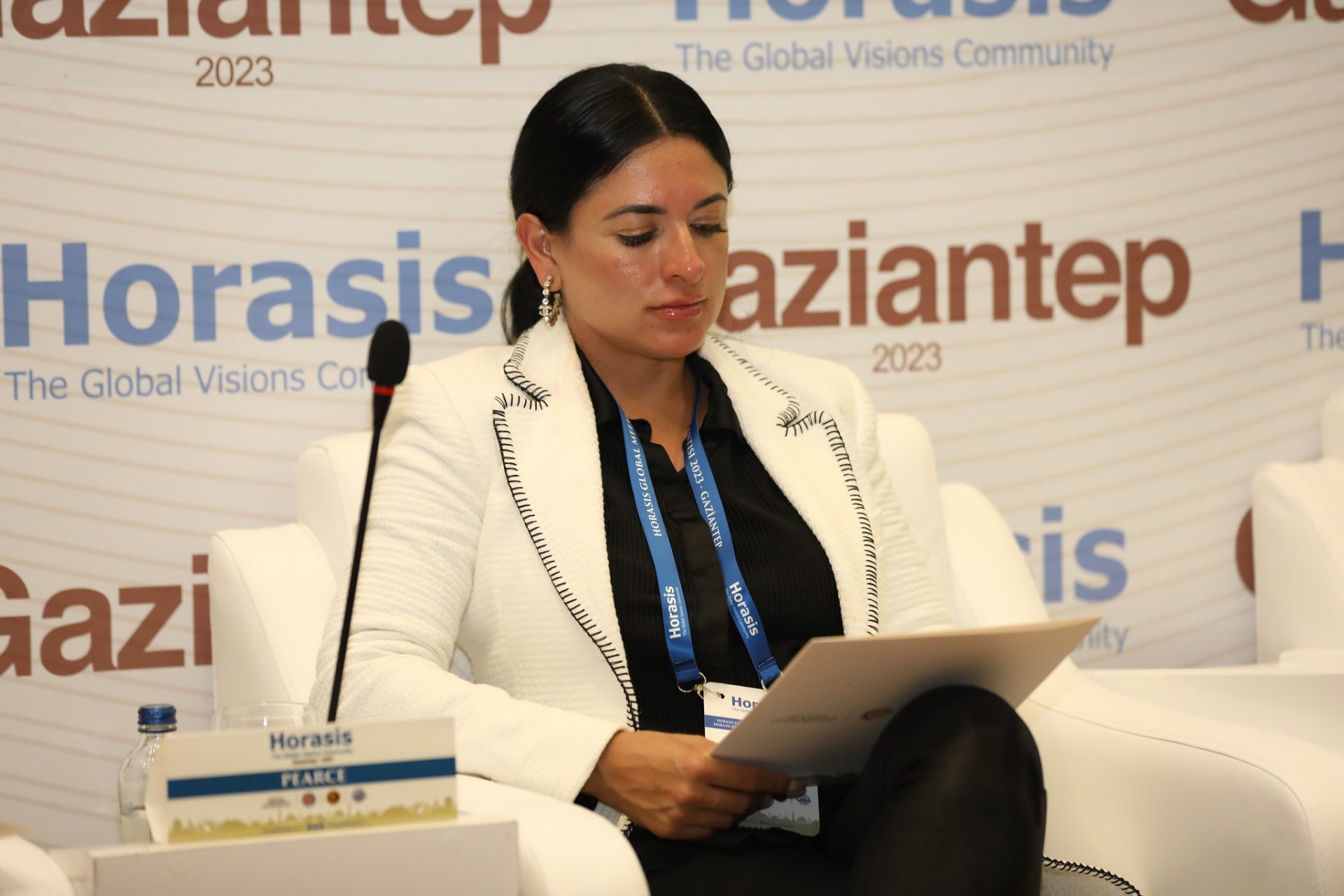
Mary Pearce, Chief Executive Officer, Empire Real Estate Investments Qatar, Qatar
The Imperative of Just Transition and Inclusive Development
Meanwhile, Alistair Clark, Member of the Board, Venus Minerals, United Kingdom, drawing from his extensive experience at the European Bank for Reconstruction and Development (EBRD), underscored the urgency of just transition, highlighting its increasing prominence over mere profits and numerical gains. His resounding message emphasized the interconnectedness of humanity and the shared responsibility in building a more sustainable and inclusive world.
Selin Arslankhan contributed to the discussion by emphasizing the need for regional collaboration to facilitate the successful integration of emerging technologies, offering compelling examples of effective collaboration in action. Her company, ReDis Innovation, serves as the pioneering platform facilitating connections between traditional businesses and cutting-edge deep tech, while also fostering collaboration with governments to drive innovation policies.
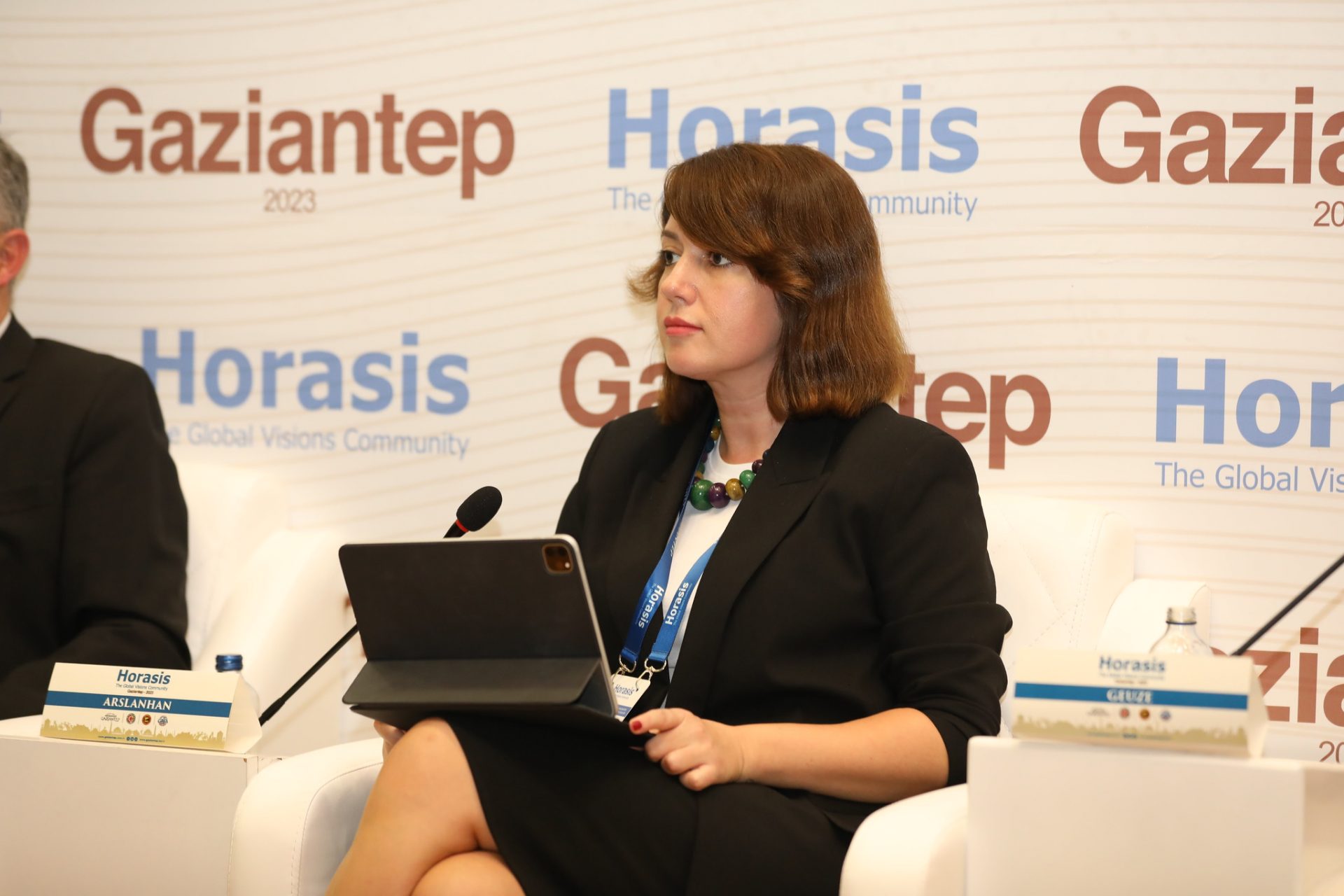
Selin Arslanhan, Founder, ReDis Innovation, Türkiye
Prospect of Sustainable Transportation and Development
Mars Gueze, Co-founder, Hardt Hyperloop, The Netherlands, underscored the importance of government involvement in pioneering sustainable transportation solutions, citing the transformative potential of hyperloop technology and its environmental benefits. As one of the leading technology developers in the world, his company is the testament of such collaboration as its already partnered with European Commission to establish European Hyperloop Center in Groningen, Netherlands.
Distinguished as a prominent figure and often recognized as the ‘hyperloop ambassador’ within the industry, Mehmet Orgen of Erciyas, Türkiye eloquently shared his visionary outlook for hyperloop technology, underscoring its groundbreaking potential as the fifth mode of transportation, complementing land, air, water, and railway networks. Drawing attention to the complexities surrounding talent acquisition and retention, Mr. Orgen highlighted the efficacy of grassroot policies, exemplified by the establishment of over 50 university clubs across Turkey focused on hyperloop technology. His insights underscored the critical role of targeted initiatives in nurturing and retaining talent, reflecting the broader significance of such strategies across diverse sectors.
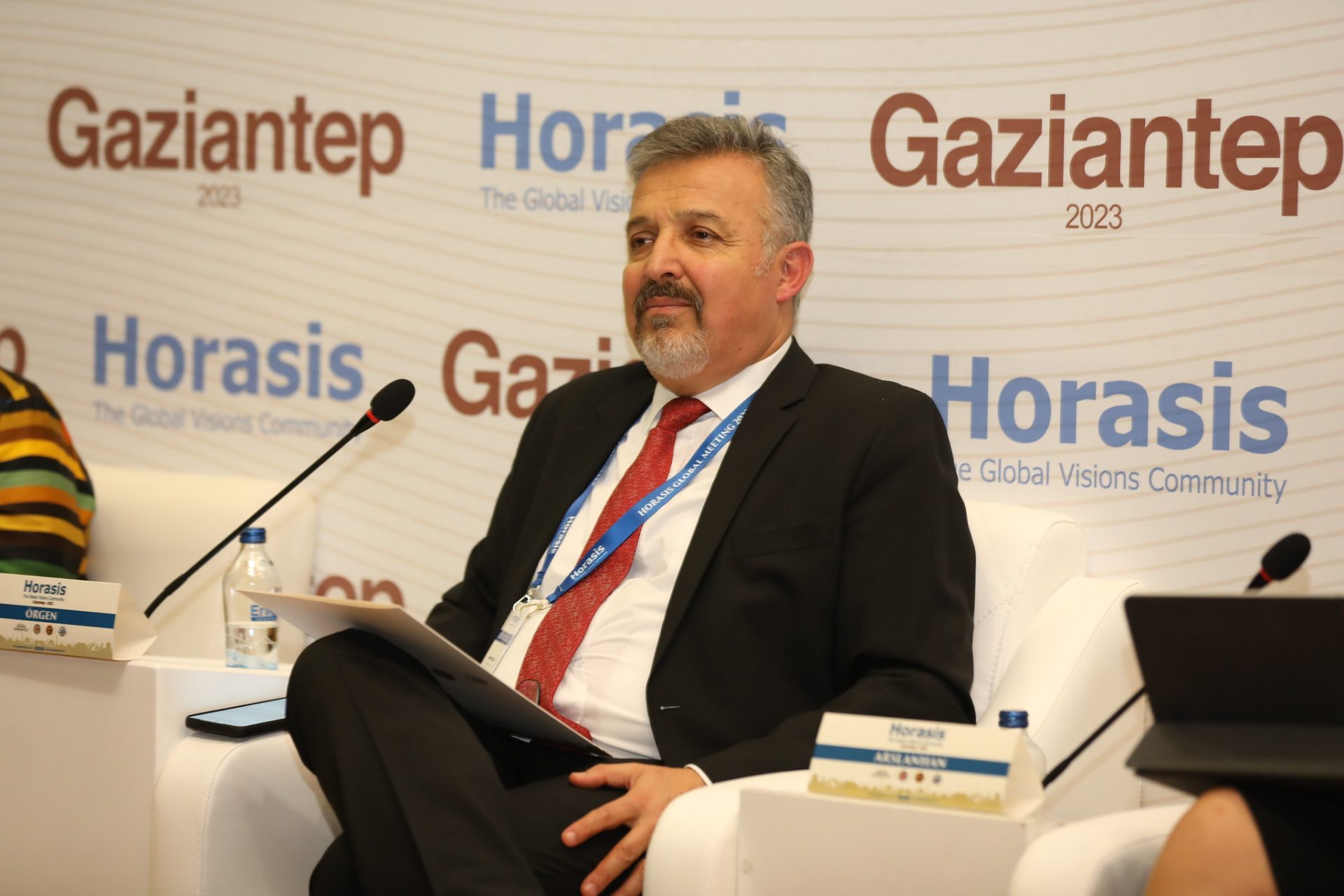
Towards a Collaborative and Sustainable Future
As the panel discussion progressed, it became increasingly evident that the fusion of traditional industries with emerging technologies is not just a choice but a necessity for sustainable progress. The conversation reinforced the critical role of collaboration and partnership between different sectors, emphasizing the need for a cohesive and integrated approach to tackle the challenges of reconstruction, sustainability, and innovation.
Significantly, these discussions carry an added weight, resonating deeply within the very confines of a region still grappling with the aftermath of the earthquake disaster.
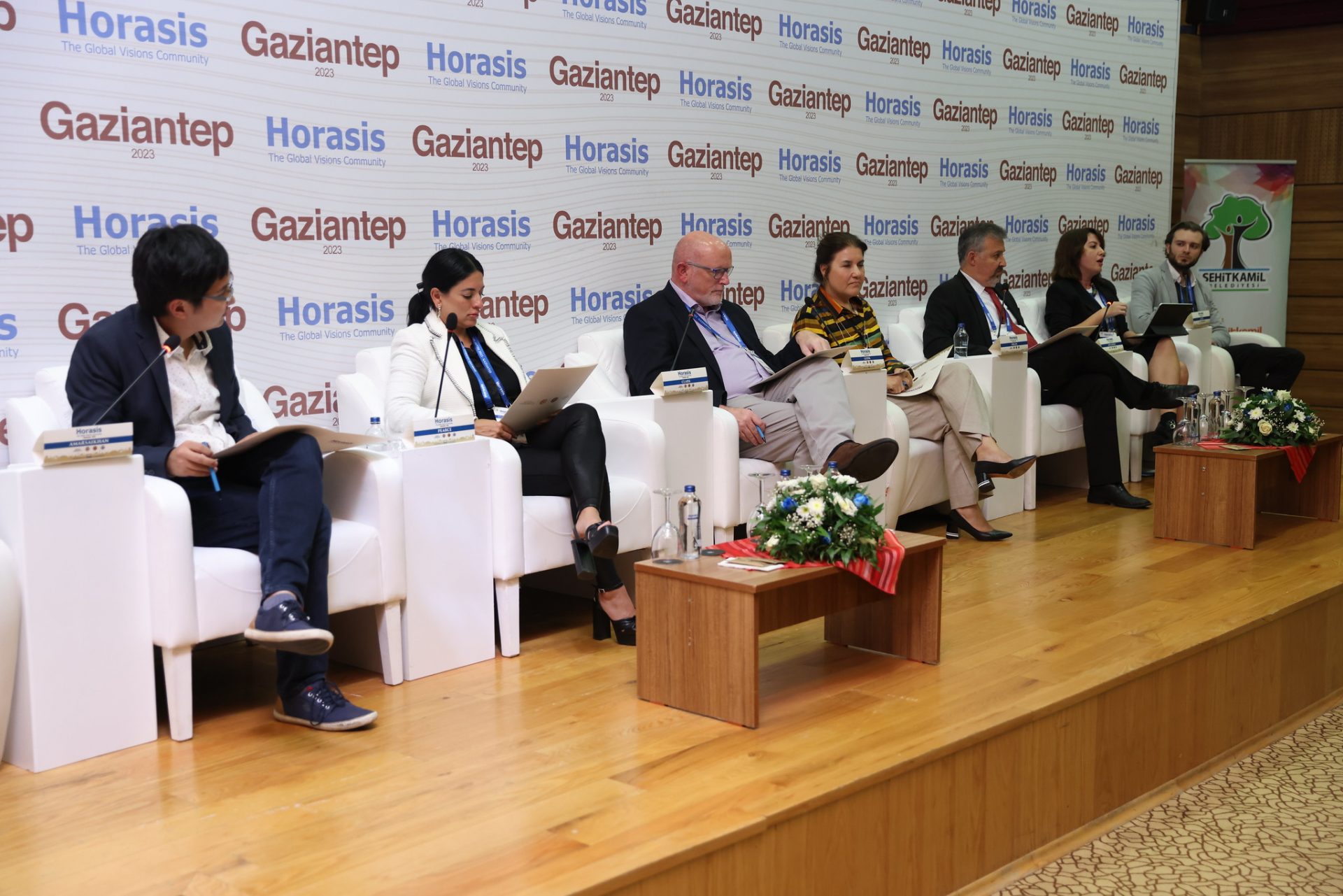
Alistair Clark, Member of the Board, Venus Minerals, United Kingdom
Looking to the Future
In the closing moments of the discussion, Mr. Mehmet Orgen’s poignant words encapsulated the collective sentiment of the panel. He emphasized that hyperloop technology, like many emerging technologies, has the potential not only to transform the way we transport but also the way we live. His powerful words resonated with the panel’s overarching message, highlighting the profound impact of emerging technologies on society at large.
For me, it was also a fitting reminder of the transformative power of technological advancements, underlining the need for a strong foundation built upon collaboration and partnership between traditional and emerging industries.
The panel served as a beacon of hope, highlighting the possibilities and opportunities that lie ahead as we collectively strive for a more sustainable and equitable future.
